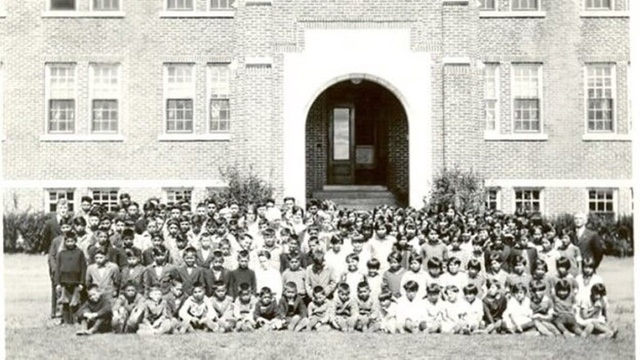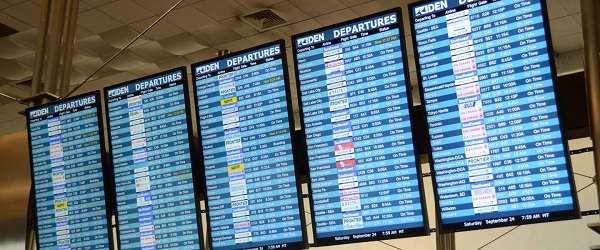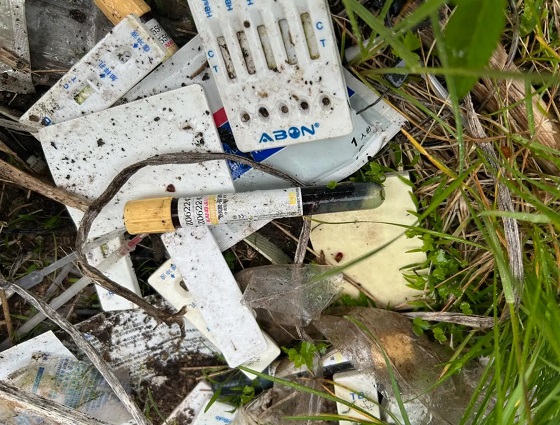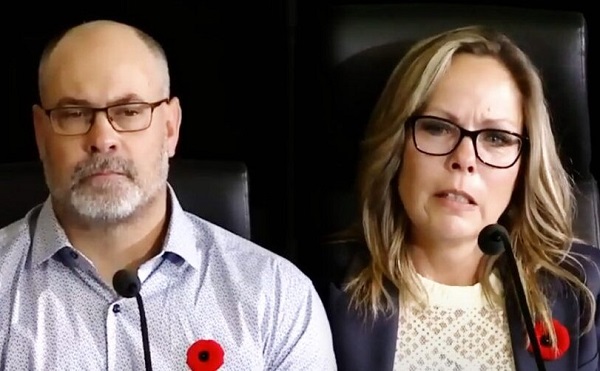Frontier Centre for Public Policy
Did the CBC prove in 1962 that no children are buried at Kamloops?

From the Frontier Centre for Public Policy
By Nina Green
The inclusion of extensive footage from the CBC’s 1962 documentary The Eyes of Children establishes that the CBC has proved that nothing nefarious was happening at the Kamloops Indian Residential School in the early 1960s
The new documentary Sugarcane uses extensive footage from the CBC documentary, The Eyes of Children, filmed in late 1962 at the Kamloops Indian Residential School.
The CBC film crew had access to the entire school and grounds for an extensive period of time, filming girls flocking to walk with the principal, Father Dunlop, senior and junior classes in session, playground activities, bedtime routines, religious services, Christmas preparations, children staying behind at the school during the holiday season because they had no home to go to, and much more.
All these activities at the school are featured in shots and video clips in the new documentary Sugarcane, including a clip of Indigenous teacher Mabel Caron teaching a senior class about telephone manners. In fact there were three Indigenous teachers at the Kamloops Indian Residential School in late 1962 – Mabel Caron, Benjamin Paul, and Joe Stanley Michel, the first graduate of the Kamloops Indian Residential School who returned there to teach and lived with his wife, Anna Soule, another graduate of the school, and their children in a teacherage on the school grounds.
The reason for using extensive footage from The Eyes of Children is not explained in Sugarcane, and is obviously confusing to viewers as Sugarcane is ostensibly about events which occurred at St Joseph’s Indian Residential School in Williams Lake. Why a film about a residential school in Williams Lake includes extensive footage from a decades-old CBC documentary about the Kamloops Indian Residential School is a mystery.
But leaving that mystery aside for explanation by the people who made Sugarcane, the inclusion of extensive footage from the CBC’s 1962 documentary The Eyes of Children establishes that the CBC has proved that nothing nefarious was happening at the Kamloops Indian Residential School in the early 1960s at a time when Canadians are now led to believe 215 children were being murdered and clandestinely buried by fellow students in the apple orchard.
In fact what was happening at the Kamloops Indian Residential School in the early 1960s, in addition to the regular school activities filmed by the CBC, was integration. A residence had been built for senior students, and they were being bussed into downtown Kamloops to attend St Ann’s Academy.
Obviously, the CBC knew all this in 1962 and knows it now.
Is the CBC implying by its silence that three Indigenous teachers and their families at the Kamloops Indian Residential School covered up the murder and clandestine burial in the apple orchard of 215 children? Did the CBC itself cover up these murders and secret burials in 1962?
Or did the CBC know in 1962 and now that nothing of the kind ever happened?
Nina Green is an independent researcher who lives in British Columbia.
Business
It’s Time To End Canada’s Protectionist Supply Management Regime

From the Frontier Centre for Public Policy
Senior Fellow Brian Giesbrecht says it’s time to stop coddling millionaire dairy barons. Supply management drives up grocery bills, blocks trade and makes Canada a global joke. Australia fixed it—we can too.
Canadians are paying the price for political cowardice
Canada’s outdated supply management system forces the average Canadian family to spend $500 a year to protect a small group of wealthy dairy producers, most of them millionaires. This protectionist regime enriches a few at the expense of many, drives up food prices and undermines Canada’s credibility in trade negotiations. It no longer fits the times, and it has to go.
Let’s be clear: this isn’t about attacking dairy farmers. Most are hardworking, conscientious people who’ve built their lives around a system they didn’t create. They rise early, work long hours, rarely take holidays and deserve fair compensation if the system is dismantled. But good intentions don’t justify bad policy.
Under supply management, the government tightly controls how much dairy, poultry and eggs Canadian farmers can produce and imposes steep tariffs—sometimes more than 400 per cent—on imported products to limit competition. The result is artificially high prices, limited consumer choice and retaliatory tariffs from other countries.
This system, once designed to protect small family farms, is now dominated by fewer than 10,000 large operations, many worth millions. It no longer serves its original purpose, yet it remains in place because of political cowardice. Pierre Poilievre and Mark Carney both know the system is flawed but won’t challenge it. Why? Because it’s popular in Quebec, a province with significant electoral influence. No party wants to risk alienating those voters.
Australia and New Zealand once faced similar challenges. They phased out their systems, fairly compensated farmers through levies and built globally competitive dairy sectors. We can too. Trump’s return to power may force our hand, but it also gives us an opportunity to act on what we should have done long ago.
Even without outside pressure, the inefficiency is clear. Every year, billions of litres of milk are dumped when quotas are exceeded. At the same time, Canadian companies like Saputo are forced to relocate abroad to reach global markets. Our artisan cheese producers are trapped in a small domestic economy while foreign markets block our exports in retaliation for our own protectionism.
The hypocrisy is glaring. We call for free trade but defend a system that imposes up to 400 per cent tariffs on imports. Our global partners are right to scoff.
Trump did. In a social media post, he wrote: “Canada is a very difficult country to TRADE with, including the fact that they have charged our Farmers as much as 400 per cent Tariffs, for years, on Dairy Products.” And in his July 10 letter announcing 35 per cent tariffs on Canadian goods, he added: “Canada charges extraordinary Tariffs to our Dairy Farmers—up to 400 per cent—and that is even assuming our Dairy Farmers even have access to sell their products to the people of Canada.”
This isn’t just an American objection. High-quality dairy from France and Germany can’t be sold in Canada because of our import barriers. Their governments respond by blocking our dairy exports. Canada loses jobs, investment and credibility.
Some defenders claim foreign dairy is unsafe. But countries like France and Germany have food safety standards as strict as ours. And Canada already has legal mechanisms to block substandard imports. We don’t need tariffs for that.
Former Liberal MP Martha Hall Findlay said it plainly: supply management is a dead end. So did Maxime Bernier, who made it a central issue during his bid for the Conservative leadership. The dairy lobby made sure he didn’t win. And we’re still stuck.
Now, all parties have voted to exclude supply management from current trade talks. We are entering negotiations that demand fair treatment while protecting one of the most unfair systems in the developed world. It’s a national embarrassment.
But this can change. A phased buyout funded by a modest, temporary levy—not taxpayer dollars—could end supply management and open our dairy sector to global opportunity. Australia and New Zealand proved it works. Their citizens don’t pay $10 for butter or yogurt. Neither should we.
It’s time to stop protecting the past. Dismantle the system. Free our producers. Lower grocery bills. Restore our credibility.
Maxime Bernier saw it in 2017. Trump is saying it again in 2025.
This time, we’d better listen.
Brian Giesbrecht is a retired judge and senior fellow at the Frontier Centre for Public Policy.
Frontier Centre for Public Policy
Canada’s New Border Bill Spies On You, Not The Bad Guys

From the Frontier Centre for Public Policy
By Lee Harding
Lee Harding warns that the federal government’s so-called border bill lets officials snoop on your data, ban big cash payments and even open your mail – all without a warrant
Think Bill C-2 is about stopping fentanyl? Think again. It lets the feds snoop your data, open your mail and ban big cash payments – no warrant needed
The federal government is using the pretext of border security, the fentanyl crisis and transnational crime to push through Bill C-2, legislation that dangerously expands surveillance powers, undermines Canadians’ privacy and restricts financial freedom. This so-called Strong Borders Act is less about protecting borders and more about policing citizens.
Bill C-2, a 130-page omnibus bill introduced on June 3, grants broad new powers to government agencies to spy on Canadians and share personal information with foreign countries. A more honest title might be the Snoop and Gossip Act.
Among its most intrusive provisions, the bill would make it illegal for any business, profession or charity to accept cash payments over $10,000, even if made in smaller, related transactions. Want to pay a contractor $10,001 in five separate payments for home renovations? Too bad.
The Justice Centre for Constitutional Freedoms quickly condemned the move. “Restricting the use of cash is a dangerous step toward tyranny and totalitarianism,” the organization posted to X. “Cash gives citizens privacy, autonomy, and freedom from surveillance by government and by banks.”
Under Bill C-2, internet service providers could be compelled—under threat of fines—to hand over names, locations and “pseudonyms” of users without a warrant. Any peace officer or public officer can demand this data by merely claiming “reasonable grounds to suspect” an offence “has been or will be committed.”
It doesn’t stop there. The bill would also authorize the government to open private mail under the same vague threshold of suspicion.
Experts in law and privacy say the bill is a massive overreach. University of Ottawa internet law scholar Michael Geist and Kate Robertson of the University of Toronto’s Citizen Lab both point out that successive federal governments have sought to expand internet surveillance for years, but Bill C-2 goes further than ever before.
“Bill C-2’s big brother tactics combine expansive warrantless disclosure with unprecedented secrecy,” Geist warns. He adds that the bill “overreaches by including measures on internet subscriber data that have nothing to do with border safety or security but raise privacy and civil liberties concerns.”
If the intent were truly to combat fentanyl trafficking and transnational crime, better tools already exist. Conservative MP Frank Caputo pointed out that the bill has 16 parts but says nothing about increasing penalties or jail time for fentanyl traffickers.
“There is nothing about bail in the bill,” Caputo said during early debate on the bill. “In this omnibus bill, it says that offenders can serve their sentence for trafficking in fentanyl from their couch.”
Bloc Québécois MP Claude DeBellefeuille argued that strengthening border security requires more boots on the ground. Two rural border crossings in her riding recently had their staffed hours cut in half.
“It is estimated that the CBSA (Canada Border Services Agency) already has a shortage of between 2,000 and 3,000 border services officers for current duties. If they are given new responsibilities, however necessary, there will be an even greater shortage,” she said.
Not only does Bill C-2 contradict Supreme Court precedent. It also sets the stage for Canada to share sensitive personal information with foreign governments. In 2014, the court ruled that Canadians have a “reasonable expectation of privacy in the subscriber information” provided to internet service providers and that police requests for such data amount to a “search” requiring a warrant.
Robertson warns that the bill not only defies this precedent but also enables Canada to share this dubiously acquired information with 49 other countries under the Second Additional Protocol to the Cybercrime Convention. Canada signed the agreement in 2023 but hasn’t ratified it. Bill C-2 would make that possible.
She calls the protocol’s weak human rights safeguards “a direct threat to existing protections under international human rights law.” Robertson co-authored a submission urging the Department of Justice to reject the 2AP and instead support data-sharing frameworks that are built on consistent rights protections across all signatories.
Further complicating matters, Canada is in negotiations with the United States over a data-sharing agreement under that country’s CLOUD Act. Canada’s willingness to comply may reflect lingering trade pressures from the Trump administration, pressures that could again push Canada to compromise its legal independence and citizens’ rights.
This bill should be scrapped or thoroughly revised. Canadians should not have to surrender their privacy and human rights to serve a global law enforcement agenda that disregards civil liberties. If the line between national security and authoritarianism is erased, the greatest threat to Canadians may no longer be drug traffickers—it may be their own government.
Lee Harding is a research fellow at the Frontier Centre for Public Policy.
-

 Energy2 days ago
Energy2 days agoIs The Carney Government Making Canadian Energy More “Investible”?
-

 Business2 days ago
Business2 days agoCompetition Bureau is right—Canada should open up competition in the air
-

 Immigration2 days ago
Immigration2 days agoUnregulated medical procedures? Price Edward Islanders Want Answers After Finding Biomedical Waste From PRC-Linked Monasteries
-

 Business2 days ago
Business2 days agoDemocracy Watchdog Says PM Carney’s “Ethics Screen” Actually “Hides His Participation” In Conflicted Investments
-

 Business2 days ago
Business2 days agoIt’s Time To End Canada’s Protectionist Supply Management Regime
-

 COVID-192 days ago
COVID-192 days agoFreedom Convoy leaders’ sentencing hearing to begin July 23 with verdict due in August
-

 Addictions2 days ago
Addictions2 days agoAfter eight years, Canada still lacks long-term data on safer supply
-

 National2 days ago
National2 days agoLiberals push to lower voting age to 16 in federal elections






